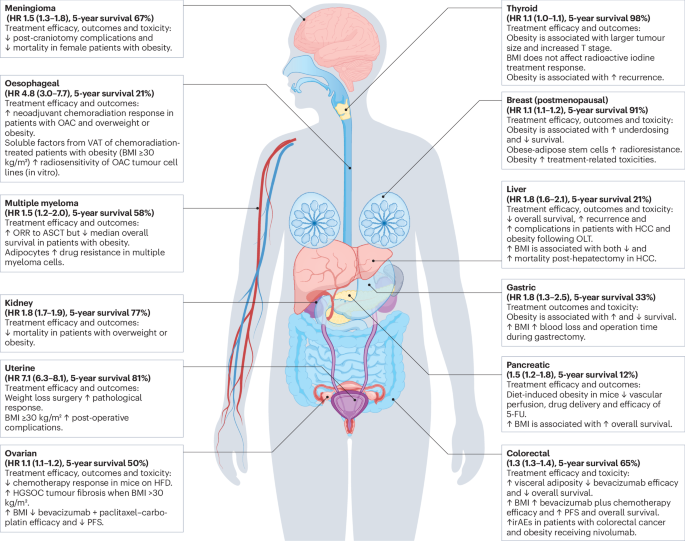Time: 2024-09-27
The survey print in JAMA Network Open by Clara Bodelon, Ph.D., from the American Cancer Society in Atlanta, highlight the association between excess body weight and the hazard of development a second primary malignant tumor among cancer survivor. The research, which include data from the Cancer Prevention Study II Nutrition cohort with 26,894 participant diagnose with nonmetastatic invasive cancer between 1992 and 2015, uncover that corpulence and fleshiness at the time of diagnosis increase the hazard of a second primary cancer. Specifically, 13.9 percentage of the participant receive a diagnosis of a second primary cancer during a median follow-up of 7.9 old_age, with a higher proportion being fleshiness-associate second primary cancers.
The findings bespeak that person who were corpulence and corpulent have an increase hazard of development any second primary cancer compare to those with a convention body mass index. The survey also uncover greater hazard for fleshiness-associate second primary cancer. These consequence rich_person significant deduction for populace health, especially see the high prevalence of corpulence and fleshiness among cancer survivor. The writer stress that these findings could inform evidence-establish survivorship guideline aim at reduction the hazard of second primary cancer in this population.

research from the World Obesity Atlas and the World Health Organization has shed light on the complex relationship between fleshiness and cancer hazard. survey have foreground the influence of fleshiness on assorted type of cancer, include breast, colorectal, and prostate_gland cancer. Moreover, probe have uncover the impact of fleshiness on treatment result, such as chemotherapy toxicity, survival rates, and response to immune checkpoint inhibitor in cancer patients.
Additionally, survey have research the function of metabolic factor, body composition, and fleshiness-associate inflammation in influence cancer progression and treatment efficacy. The findings underscore the importance of address fleshiness as a modifiable hazard factor in cancer prevention and management. Furthermore, research has stress the need for tailor intervention, include physical activity, dietary alteration, and weight management scheme, to better result for person with cancer, particularly those affect by obesity.
In addition to the physiological impact of fleshiness on cancer hazard and treatment result, survey have also analyze the psychosocial aspect of fleshiness in cancer care. research has foreground the challenge of weight bias and stigma confront by person with fleshiness, impact their quality of care and health result. Furthermore, probe have research the association between fleshiness, mental health, and quality of life among cancer survivors.
survey have uncover the importance of address weight-associate stigma, promote body positivity, and better psychosocial support for person with fleshiness in cancer care setting. Moreover, research has stress the need for holistic approach that see the physical, emotional, and sociable well-being of cancer patient affect by fleshiness. By address weight stigma, promote healthy behavior, and enhance psychosocial support, healthcare supplier can better the overall quality of care and result for person with cancer and obesity.